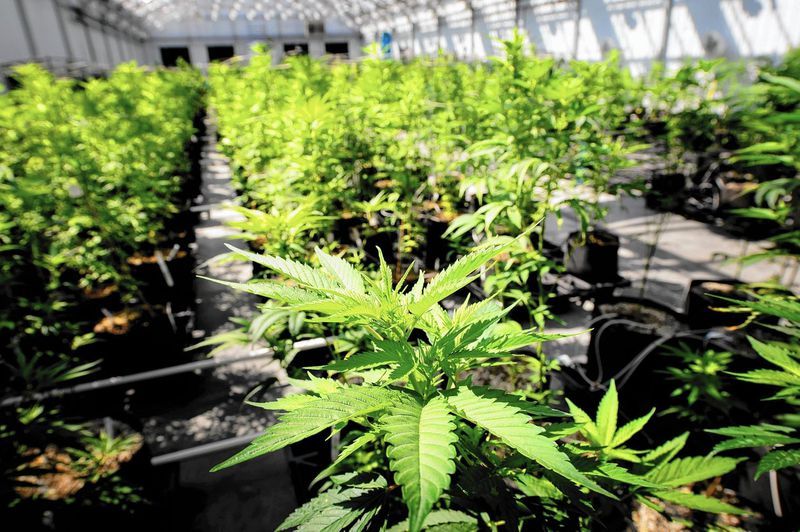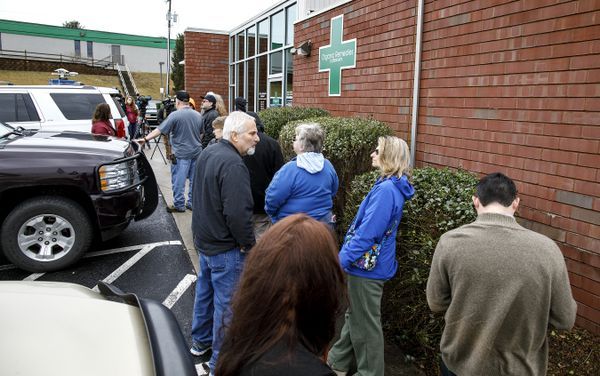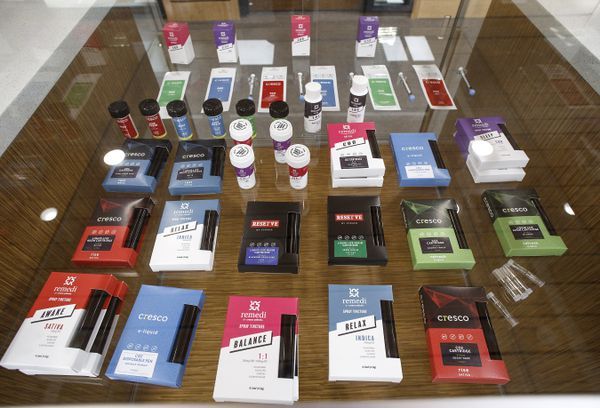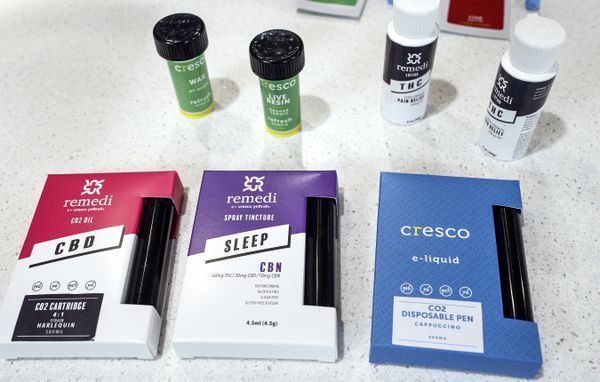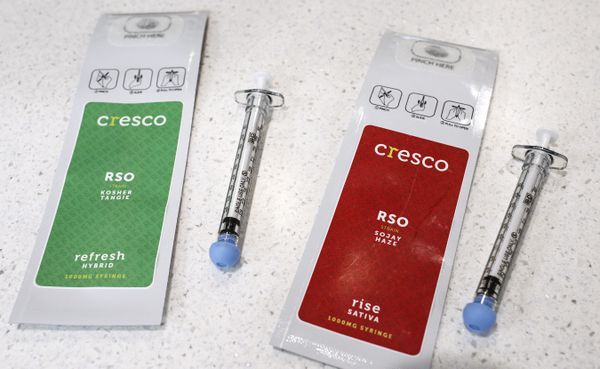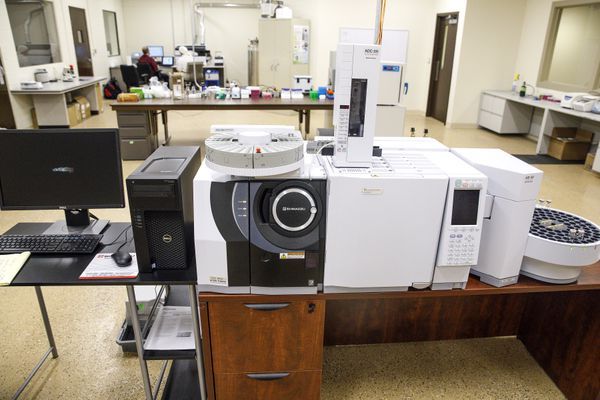So, this is happening in Maryland lately also. Very tight supply of flower lately due to failure to ramp up production capacity in the face of market growth (number of reg patients, yeah?).
This is very clear historical precedent for this type of outcome when government attempts to centrally control production planning and distribution (which has been most often historically referred to as characteristics of Socialism). Just ask anyone who has every tried to shop in a grocery store in the USSR before its fall.
Government has demanded this kind of control for legal MJ programs and, in an entirely easy to anticipated way, have failed.
PA is also a lot like MD in that our government has also failed to anticipate management contracts and other loop holes around ownership restrictions and was "just gobsmacked" to discover that essentially illegal industry consolidation has been going on right under their ignorant noses.
In MD, they still haven't figured that one out.
5 reasons why there’s a medical marijuana drought in Pennsylvania
Medical marijuana is the only medicine that helps Dalton Hunsberger with seizures, nausea and anxiety.
But for two months, it’s been very difficult to find the medicine that treats the 21-year-old Perkasie man’s epilepsy and other symptoms. “When the dispensaries get it in, it’s gone within a couple of hours,” said Dalton’s mother, Charis Hunsberger.
Pennsylvania is in the grip of a medical marijuana drought, according to multiple dispensary owners from Philadelphia to Pittsburgh.
Some dispensaries are rationing dried flower. At Restore Integrative Health Care, a dispensary in Fishtown, there’s a seven-gram limit per patient per day. At Keystone Shops in South Philadelphia there’s a 14 gram a day maximum while TerraVida Holistic Centers in Abington caps it at an ounce (about 28 grams).
“We’re trying to help as many patients as possible in an equitable way so the people who get in first aren’t the only ones who get it,” said Mike Badey, CEO of Keystone Shops, a dispensary chain. “It’s frustrating. It’s also the perception of a shortage can exacerbate a shortage. It’s like a run on the banks.”
The Pennsylvania Department of Health, which oversees the nascent, highly regulated market, says the state’s medical marijuana program is a victim of its own success.
“Any product shortages are the result of the ever-growing medical marijuana program,” said Nate Wardle, a Health Department spokesperson. “As new dispensaries become operational, they must order their entire stock at once.”
More than 60 state-approved cannabis retail shops are now operating across the commonwealth, catering to nearly 200,000 registered patients.
Patients and patient advocates blame the state regulators for not anticipating the rising demand and making sure that there are enough marijuana growers to meet the demand.
“You wouldn’t ever expect to go to a CVS and hear your medicine is three weeks out,” said Oludare Odumosu, chief operating officer of Ilera Health, a grower that also runs three dispensaries in Southeastern Pennsylvania.
Industry observers say that state officials’ lack of expertise in regulating a fast-growing market are not limited to, or unique to, Pennsylvania.
The number of patients and dispensaries has exploded, but the number of growers has stayed the same. There should be 25 growers producing medicines. Yet more than two years after the first permits were granted, only 10 growers are producing.
In June 2017, the state awarded the first 12 permits to cultivators. But several weren’t qualified. Some lacked the skills, or the financial wherewithal, to pull off a crop. At least one applied with the intention of flipping its license for a quick cash windfall.
Agrimed LLC was the highest scorer in the state’s highly competitive process. The Western Pennsylvania firm has not shipped a single speck of cannabis. Because of gross security lapses involving the disappearance of cannabis plants, the state has said it will not renew Agrimed’s permit, but the regulator hasn’t said whether it will reissue that permit to another grower. Another top scorer, Reading’s Franklin Labs, chaired by former Gov. Wolf aide John Hanger, tried to flip its permit for $20 million soon after it was awarded. Both companies currently are controlled by the beleaguered marijuana company Harvest Inc. of Arizona.
“Problems with the licensing processes tend to create cascading effects throughout the system,” said John Hudak, a senior fellow in governance studies at the Brookings Institution. “If you get it wrong at the outset, it won’t be the only challenge you face. Pennsylvania is dealing with that right now.”
In July 2018, the state awarded a second round of 13 permits. Each promised to be “operational” in six months. More than a year later, none of them is shipping marijuana.
Justin Moriconi, CEO of DocHouse LLC, apologized for the delay. Construction of his Pottsville growhouse may continue through March. “We’ve had plenty of setbacks,” Moriconi said. “We leveled a coal mine. We put a road in. We’re building a small city here.” DocHouse likely will not start shipping until June 2020, he said — almost two years since getting the permit.
For its part, the state has sent out sternly worded letters to the growers who aren’t producing yet. But it has no power to ensure the growers ship medicines.
The state has deemed a handful of the second-round growers “operational” — meaning they’re capable of growing, not that they are shipping or generating revenues.
“We know that once operationalized, it takes several months for medical marijuana plants to be grown and then processing has to occur,” Wardle said.
The state hasn’t always had to make excuses for its marijuana growers. Cresco Labs, an Illinois-based producer with a history of success in other states, was the first to ship product to dispensaries — only eight months after winning a permit. Terrapin and Standard Farms followed suit 30 days later.
The Health Department may deserve some blame for not ensuring that supply keeps up with demand, experts say.
“At the end of the day, you’re not getting the most seasoned regulators,” said Daniel B. Rodriguez, a professor and former dean at Northwestern University’s law school in Chicago who studies the intersection of cannabis and law. “What you’re seeing is the regulation of a new technology, and many of the regulators in the states don’t anticipate what the consequences of the new technology are.”
Jon Cohn, CEO of Agri-Kind LLC, is one of the rare second-round growers that will be harvesting soon. He said several strains of marijuana are underway at his growhouse in Chester and should be shipping the first week of October.
“We’ll be starting small because when you begin, you start with cuttings or seeds,” Cohn said. “So we’re creating mother plants right now and taking clones of them.”
Statewide, the health department has “certified” or approved 67 marijuana outlets, up from 43 at the beginning of the year. About 60 of those retailers are open.
Every dispensary must be stocked with a full complement of medicines — from flower to vape pens, concentrates to tinctures.
Every time a new dispensary is launched, each has to contend with a smaller share of the limited marijuana supply.
At TerraVida Holistic Centers, president Chris Visco said she struggles to maintain enough inventory.
“With one grower, I’ve gone from 150 pounds of flower a month down to 40 pounds,” said Visco. Until recently, it wasn’t unusual for TerraVida to have dozens of cannabis strains in stock. On Monday, there were only two varieties of flower.
There were 17 qualifying “serious medical conditions” when the program was launched in February 2017. Now there are 23.
Recent additions include opioid-use disorder, anxiety, and Tourette’s syndrome. When anxiety was added to the list in July, 3,000 new patients joined in less than two weeks.
The most common reasons for enrolling as of June were chronic pain (50%), post traumatic stress disorder (13.5%), neuropathies (8.6%), and cancer (8.4%).
“The uptick in patients outstripped the state’s projections,” said Odumosu of Ilera Health. “That’s all put a strain on supply across the board.”
Patient advocate Chris Goldstein said blaming patients for the shortage is misattributing the cause.
“It comes down to poor management,” said Goldstein, an organizer with NORML, the National Organization for the Reform of Marijuana Laws. The state, he said, should have expected growth in the number of patients and managed growers and dispensaries accordingly.
That’s a sentiment echoed by Charis Hunsberger, who buys Terrapin flower for her epileptic son.
“If the state is going to treat it as medicine, they should be doing whatever is necessary so there isn’t a shortage,” she said.
When medical marijuana was first legalized, Pennsylvania law did not permit smokable flower. So, when legislators allowed it in August 2018, many growers were caught flatfooted: No one had hired skilled bud trimmers or planned for the necessary drying and curing rooms.
Flower is the most affordable and familiar form of marijuana available to patients, most of whom had never heard of some of the exotic concentrates. The concentrates typically fetch higher prices, even though they’re cheaper to make using parts of the plant — the leaves, stems, and stalks — that would otherwise be thrown away. That means concentrates are often highly profitable, up to 2.5 times greater than flower, experts say. That gives growers and processors an incentive to stay focused on non-flower products.
Patients also are switching to flower due to recent reports of a mysterious lung ailment linked to vaping. Dispensary owners in the Philadelphia region say sales of vaping cartridges and pens have fallen in the wake of the scare. In Massachusetts, where regulatory transparency is the norm, sales of vape products crashed 15% last month before all vape products — with and without intoxicating THC — were banned for the rest of the year.
“Even though the growers assure us that there are no dangerous additives in their [vape] products, people are still very apprehensive,” said Rob Stanley of Restore Integrative Wellness in Philadelphia.
Officials at the health department couldn’t confirm or provide Pennsylvania sales data.
Many of the state’s current growers — transplants from out west who earned their stripes in such states as Colorado and Nevada — weren’t prepared for the wide swings in humidity in Pennsylvania, especially in July and August, experts say.
Rumors of destroyed crops are common. However, the Health Department wouldn’t confirm it or provide data on whether growers have cut back their shipments.
“That information is protected by law,” said Health Department spokesperson April Hutcheson, adding that the department hasn’t been notified of any crops lost to mold.
It’s unfortunate that Pennsylvania has such tight restrictions on releasing cannabis data, said Hudak, the Brookings Institute expert on governance and cannabis.
“The problem with a lack of transparency is that it creates layers of distrust that really rattle the system,” Hudak said. “Pennsylvania isn’t the only state with those restrictions, but with them you can’t generate trust or show the broader public how the system is working.”
Yet sometimes, moldy product even appears on dispensary shelves.
Privately, growers acknowledge that mold is not uncommon, especially as some grower-processors didn’t anticipate the need for sophisticated curing rooms and air filtration devices.
“Many growers here have not been subjected to full summer conditions,” said Cohn of Agri-Kind. “Mold is something that growers are likely checking themselves. It is possible that if they found moldy crops, they destroyed them as they should.”
Experts say that managing a growing environment is a complicated task, especially when you’re producing for patients who could get severely ill or die if they inhale mold, microbes, or other toxins.
“With each air change in a grow room to reduce oxygen levels, the humidity goes too high — and mold often results,” said Scot Ziskind, a Philadelphia-based mechanical engineer who consults with marijuana growers about environmental issues as far away as Hawaii. “Air changes occur at least four times an hour. Maintaining temperature is also an issue.”
“If you can’t control it, you lose your crop,” he said.
